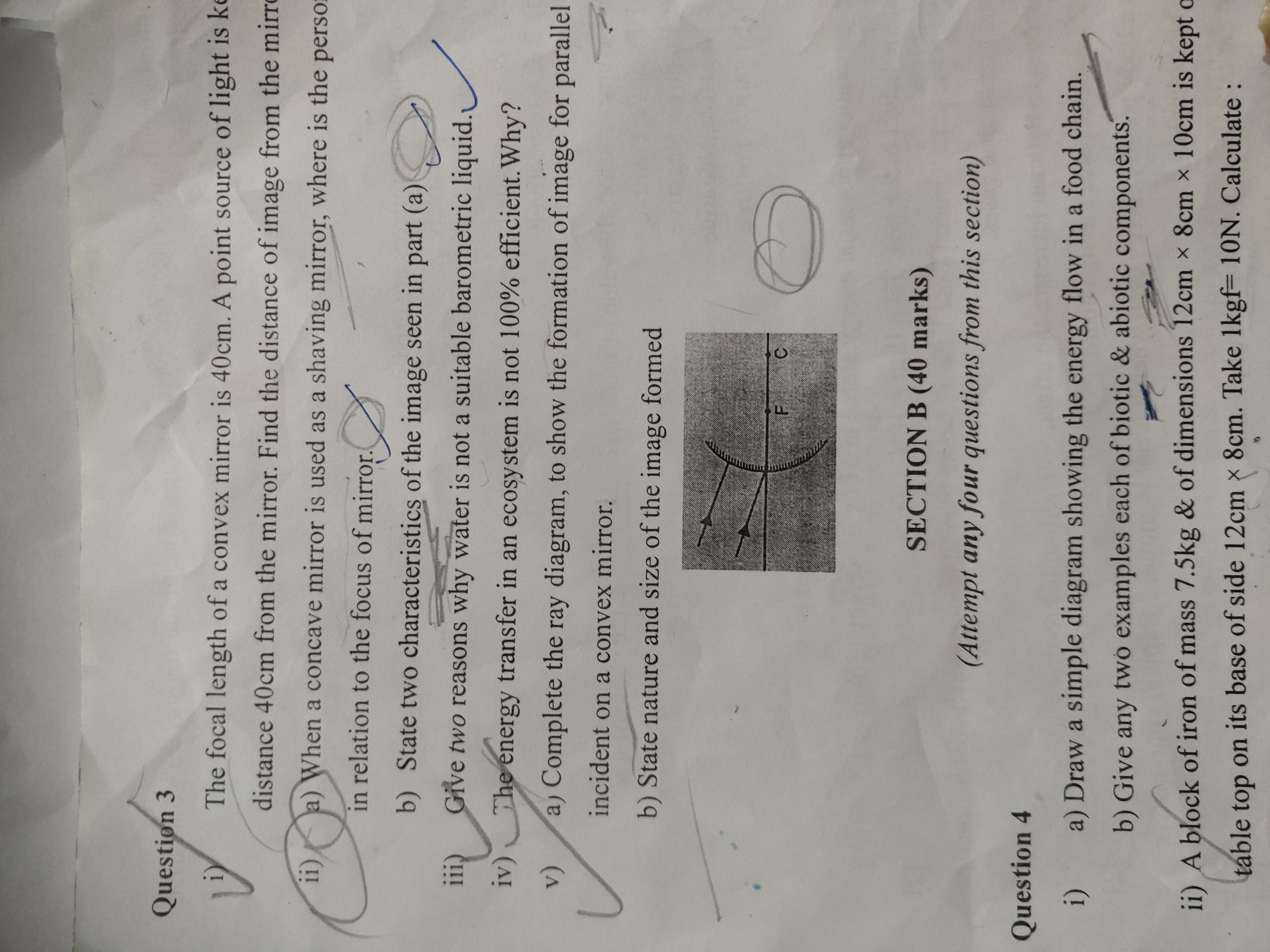Multiple physics and biology questions from an attached image.

Understand the Problem
The image contains multiple physics and biology questions. These questions cover topics such as convex and concave mirrors, barometric liquids, energy transfer in ecosystems, ray diagrams, food chains, biotic and abiotic components, and calculations involving force.
Answer
Here are the answers to the physics and biology questions as requested.
Here are the answers to the questions:
Question 3: i) The image distance is 20cm behind the mirror. ii) a) The person is located between the pole and the focus of the mirror. b) The image is upright and magnified. iii) Water is not suitable because it has a low density and a high vapor pressure. iv) Energy transfer is not 100% efficient because energy is lost as heat during metabolic processes. v) a) A ray diagram would show the rays diverging upon reflection, with their extensions appearing to meet at a point behind the mirror. b) The image is virtual, erect, and diminished.
Answer for screen readers
Here are the answers to the questions:
Question 3: i) The image distance is 20cm behind the mirror. ii) a) The person is located between the pole and the focus of the mirror. b) The image is upright and magnified. iii) Water is not suitable because it has a low density and a high vapor pressure. iv) Energy transfer is not 100% efficient because energy is lost as heat during metabolic processes. v) a) A ray diagram would show the rays diverging upon reflection, with their extensions appearing to meet at a point behind the mirror. b) The image is virtual, erect, and diminished.
More Information
These answers cover concepts from physics (optics, mirrors) and biology (ecosystems, energy transfer).
Tips
Be clear in definitions and ensure ray diagrams accurately depict the behavior of light.
AI-generated content may contain errors. Please verify critical information